Lychee is a plant with beautiful and colorful floral calyxes that fruit wonderfully. For this reason, lychee has adorned the gardens of Chinese emperors themselves. For nearly 4,000 years, lychee fruit has been cultivated in China.
During the Han Dynasty, the emperor was a firm believer in the benefits of consuming fresh lychee fruit daily. In his quest for this miraculous fruit, trusted individuals would tirelessly journey through remote regions day and night. Today, lychee cultivation has expanded across southern Asia and parts of Australia, gaining popularity in Africa, Hawaii, and Florida.
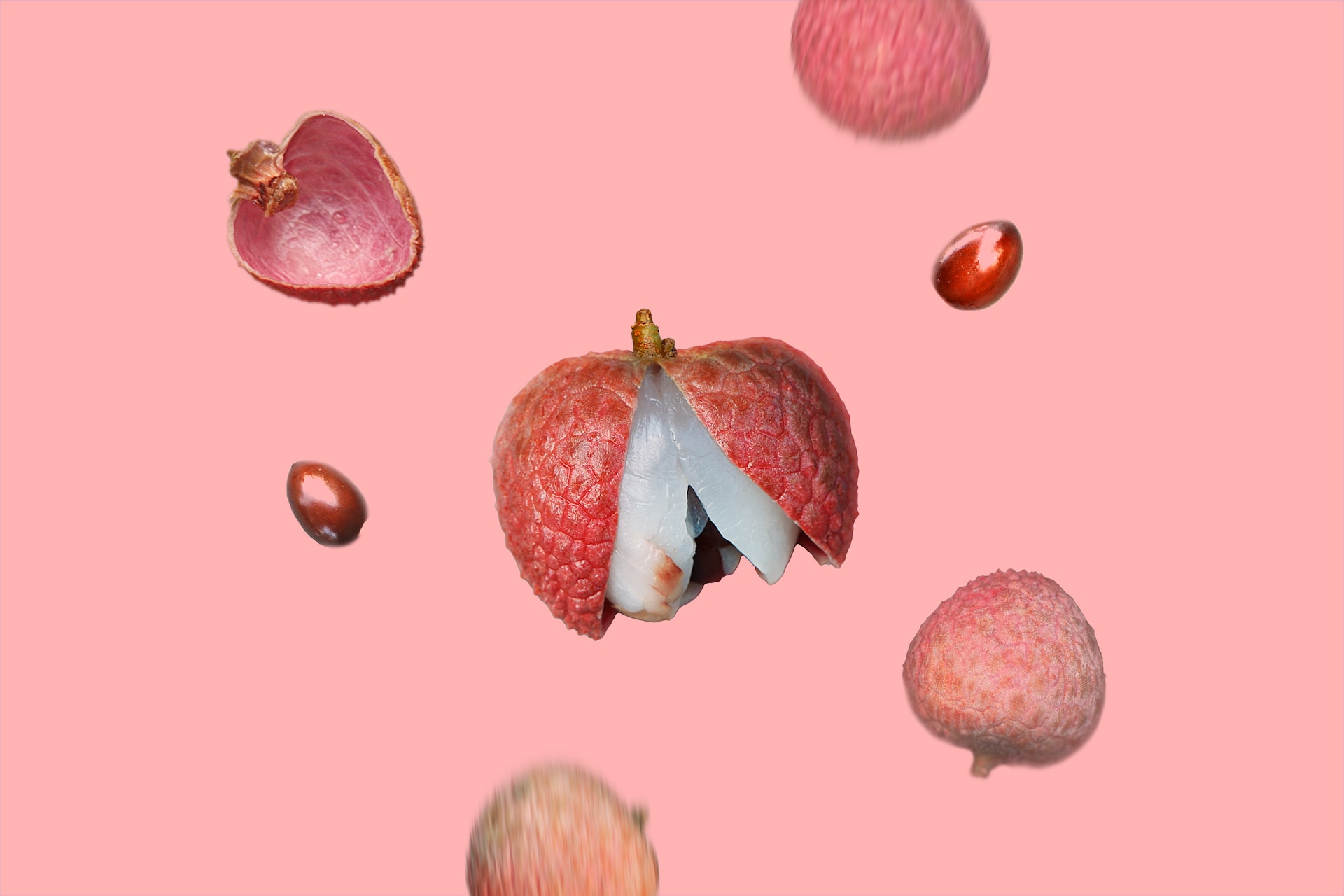
These delicious fruits grow on trees with evergreen leaves. The fruits hanging on long stalks may be associated with strawberries or raspberries but have little in common. The rough, tough, but thin, and crisp skin of the lychee fruit hides a tasty flesh of pearl white color. In the center of the fruit is a large, oblong, brown seed. The lychee grows up to 12 meters/40 feet tall and is an evergreen tree with pinnate leaves and small green-yellow flowers gathered in inflorescences.
Under the top layer of the fruit is the juicy flesh – this is the edible part characterized by its white, glassy color. Inside the lychee fruit, you'll find an oblong seed at its center. It's important to note that both the seed and the shell surrounding it are not meant to be consumed. However, removing the shell from the flesh is a simple task. A ripe lychee will have pink skin without any green marks. While lychees are safe for human consumption, whether dogs can safely consume them remains uncertain.
While there is still much research to be done on the effects of lychees on dogs, it is certain that the fruit should not be given to them whole. Dogs may swallow it and risk intestinal blockage or choking. Furthermore, the elongated seed inside the flesh is toxic to animals. If you choose to give your dog lychee pulp, make sure it is a small amount of well-cleaned pulp from ripe fruit and given between meals. However, since the toxic doses are not fully known, experts advise against feeding lychee fruit to dogs.
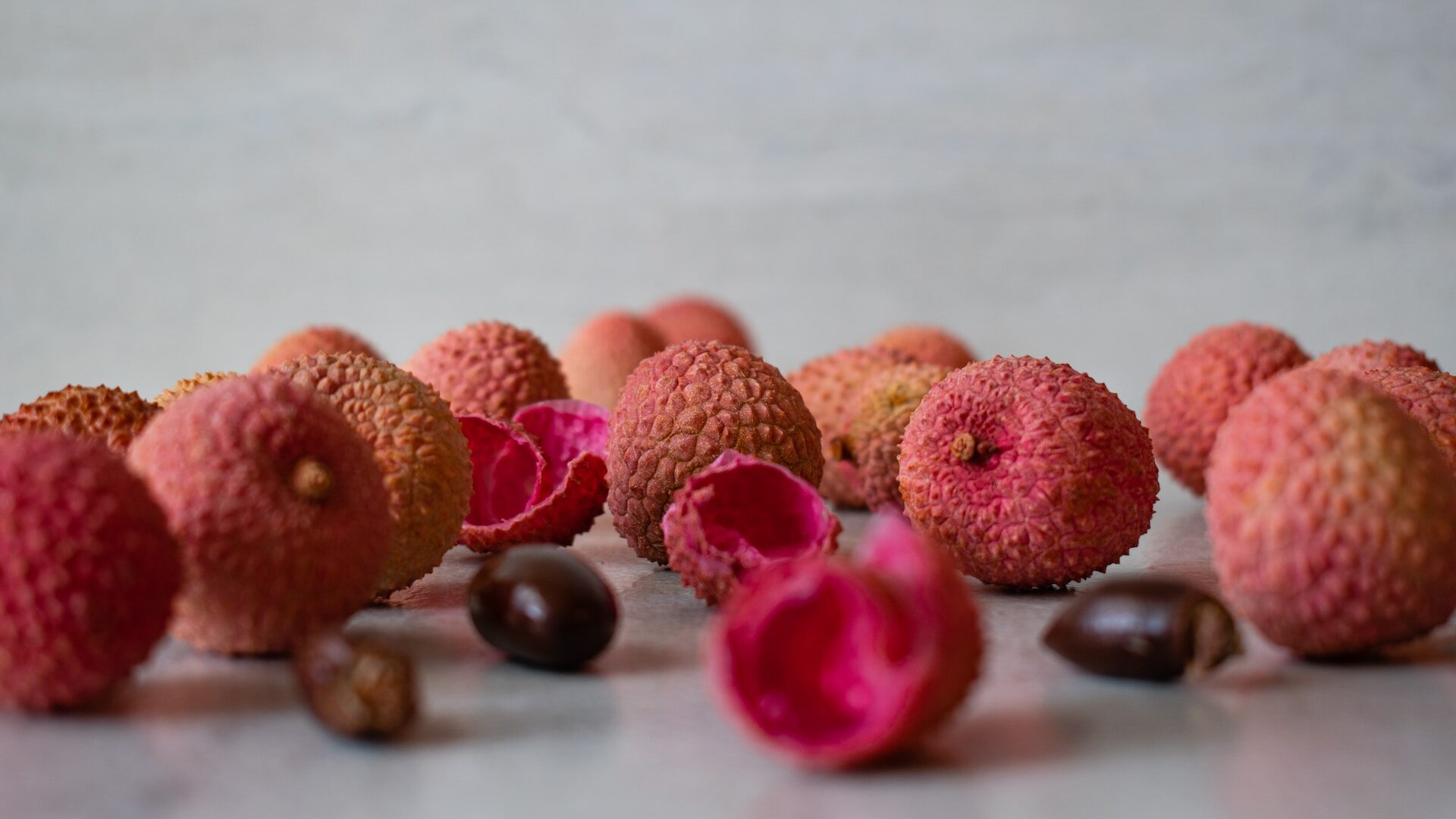
Curious about how to pronounce “lychee”? Many people have wondered about the correct pronunciation. In English, it is phonetically pronounced as “lay chee.” If you still want to be certain, you can search for voice recordings to hear the correct pronunciation. Then you won't have to worry about making a mistake anymore.
The lychee fruit is small, prickly, spherical, or slightly conical. The brownish-red skin is thin, brittle, and complex, covered with conical outgrowths. Lychee has a sweet-sour taste, white pearl flesh, and a large seed. It is a very juicy fruit with a distinct lousy taste. The taste of lychee can resemble that of kiwi fruit.
If you have a strong fondness for lychees, you might consider growing them in a pot. However, it's important to be prepared for the challenges and potential setbacks that come with cultivating this fruit. Lychee trees have specific requirements and may struggle to thrive in temperate climates.
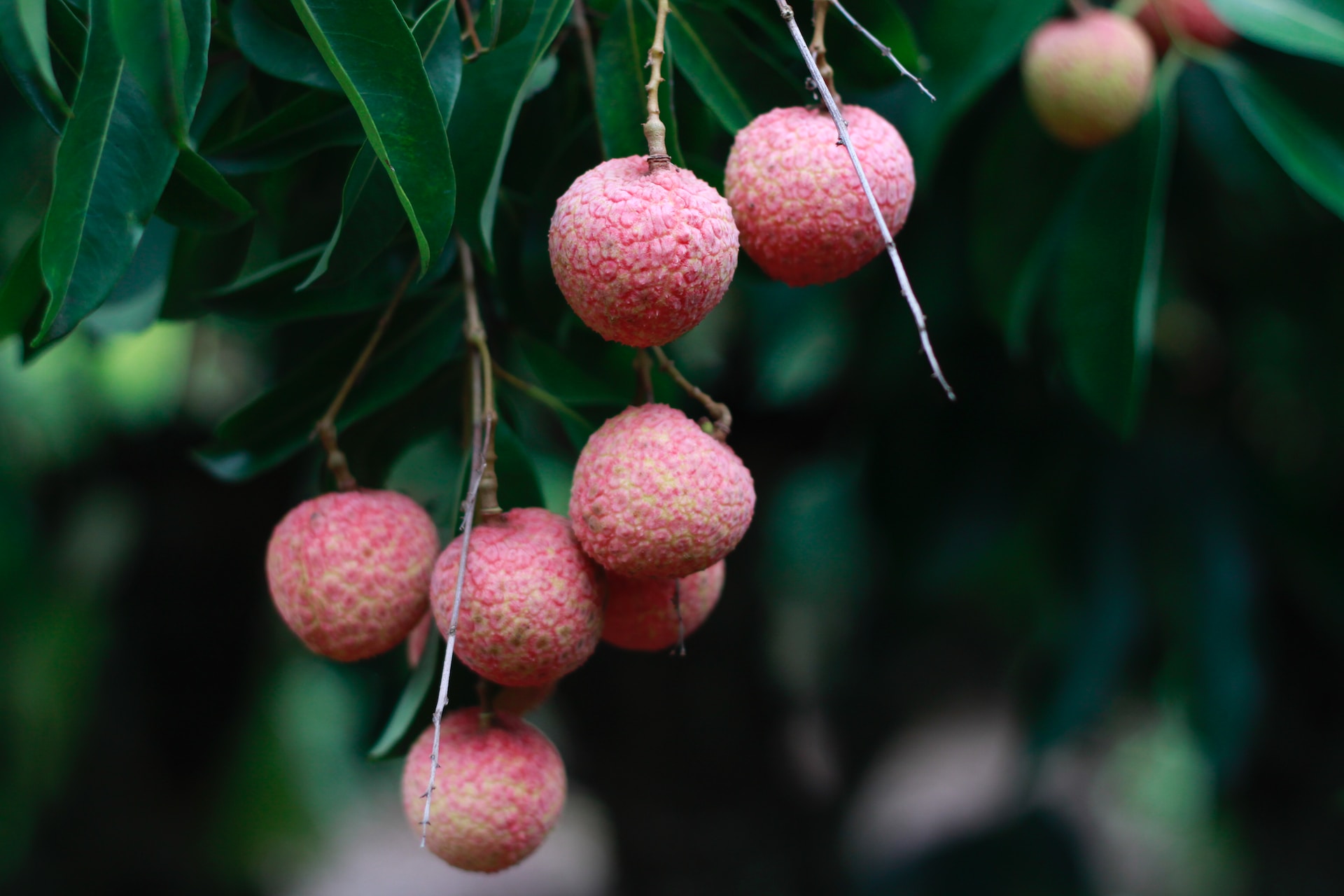
Temperature – Lychee trees have specific climate requirements due to their origin. They thrive in regions with long, hot, and humid summers. However, they also need a few weeks of cooler weather, with temperatures not exceeding 10°C/50°F, for optimal blooming. It is important to maintain the right temperature for the lychee tree since both extremely high and very low temperatures can negatively affect its overall health.
Location – Lychees, under natural conditions, grow on trees that reach a considerable size. They like warmth and sunshine and would certainly not withstand the winter of temperate climates. Therefore, if you live in such a climate, it is advisable to grow lychees in a pot that you can store in suitable conditions. Put the sown lychee seeds in the pot in a warm and sunny place in the house, and it is also good as the air is moist.
Seeds – Growing lychees from a fresh seed is possible, but not very successful. To try it, remove the skin and extract the oblong, brown seed from the fruit. However, these seeds quickly lose their ability to germinate, and even if they do grow into trees, they won't bear fruit in home conditions. It's best to buy special lychee seeds from garden stores for a better chance of success.
Soil – Lychees are best sown in early spring. The ground is preferably peat mixed with sand and perlite. Place the soil in a pot; the soil reaction should be acidic. Lychees grown at home do not require intensive fertilization. It is enough to fertilize the plants alternately with an all-purpose fertilizer for potted plants and humus. More intensive fertilization is needed for the plant because lychees are sensitive to the salinity of the soil.
Watering – Lychee trees don't tolerate overwatering, so it's important to have well-draining and fertile soil in the pot. Chinese lychees require regular watering, keeping the substrate moist throughout the growing season. However, it's crucial to maintain consistent moisture without causing waterlogging, as excessive moisture can lead to root rot. Additionally, avoid using hard water for watering as it can cause leaf drying. To provide adequate humidity, placing a humidifier near the lychee tree is beneficial.
Harvesting – Lychee trees typically bloom in March and April, with the fruits being ready for harvest in June and July, around 3-4 months later. Normally, lychee trees produce fruit once a year. However, there is an exception in India where some areas have lychee trees that fruit twice a year. Keep in mind though that the chances of a potted lychee tree bearing fruit are minimal.
Problems – Fungal pathogens cause the most common diseases of lychee trees. Improper conditions cause many fungal infections that lychee trees can develop. How to deal with lychee disease depends on the specific disorder, of course, but many fungal diseases cannot be controlled with fungicides once they have caused symptoms.
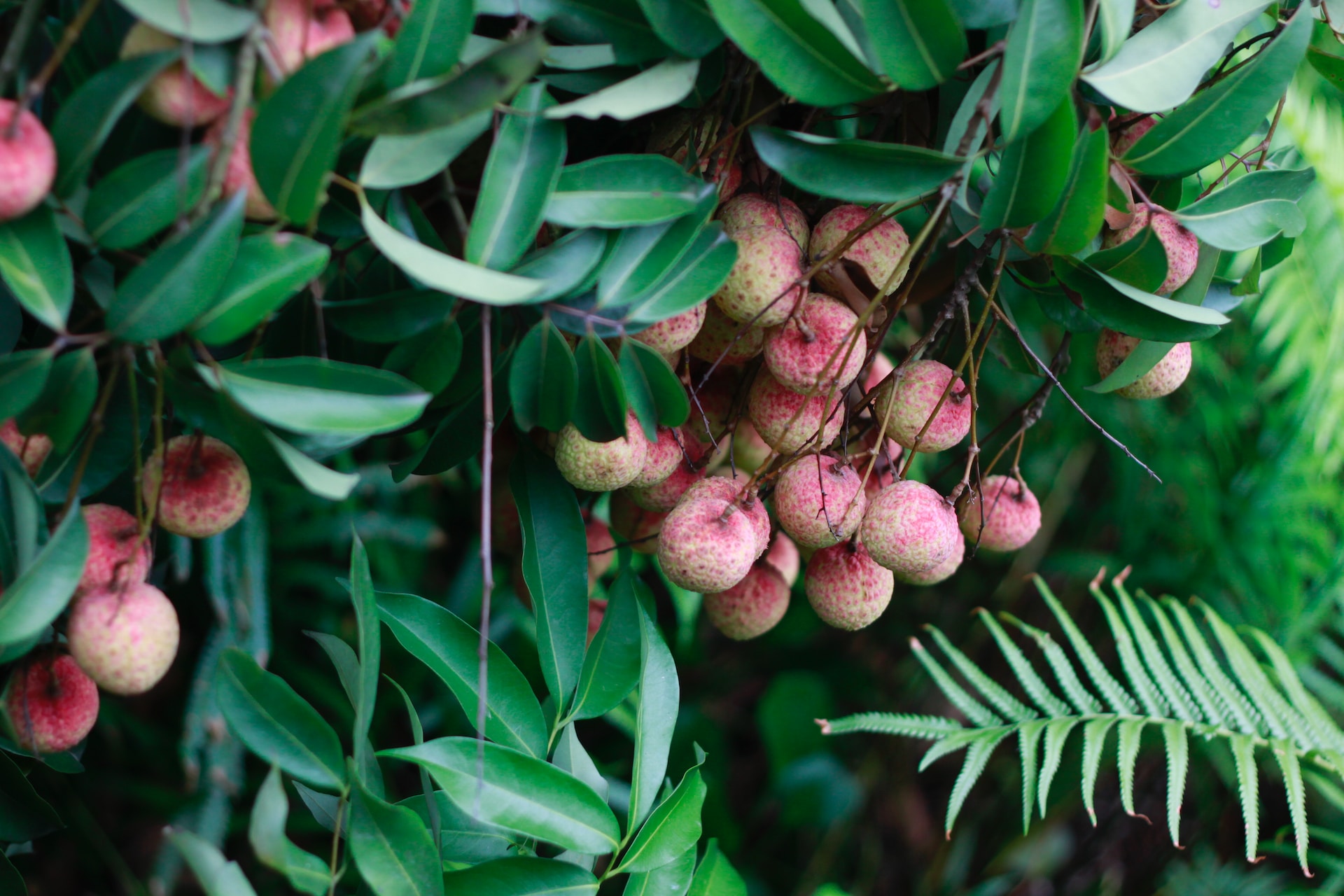
Lychee has many health-promoting properties; on top of that, it has a unique taste and aroma. It is an excellent addition to desserts and main dishes. The lychee fruit has the following nutrients:
Vitamin B – Lychee contains various types of vitamin B. We find niacin, riboflavin, thiamin, and folic acid in lychee. Admittedly, these are small amounts of B vitamins. However, it is worth remembering that a balanced diet should provide all vitamins and minerals. And B vitamins have many health benefits. First, B vitamins are essential for using energy from food, the proper functioning of the nervous system.
Vitamin C – Lychees are rich in vitamin C, with just seven fruits providing enough to meet an adult's daily requirement. This makes lychees a great food for boosting immunity. Additionally, vitamin C has various beneficial effects on the body, including aiding in the proper functioning of substances like iron.
Vitamin E – Lychee contains a small amount of vitamin E, which plays a vital role in the body as an antioxidant and supports the immune system. While vitamin E has many benefits in preventing various diseases, lychee is not a significant source of this nutrient. For better sources of vitamin E, consider avocados and berries.
Vitamin K – Lychee contains small amounts of vitamin K, which plays a crucial role in blood clotting. It is involved in the prothrombin factor of blood clotting and has been recognized for its importance in human health. However, strawberries and peaches are better sources of vitamin K.
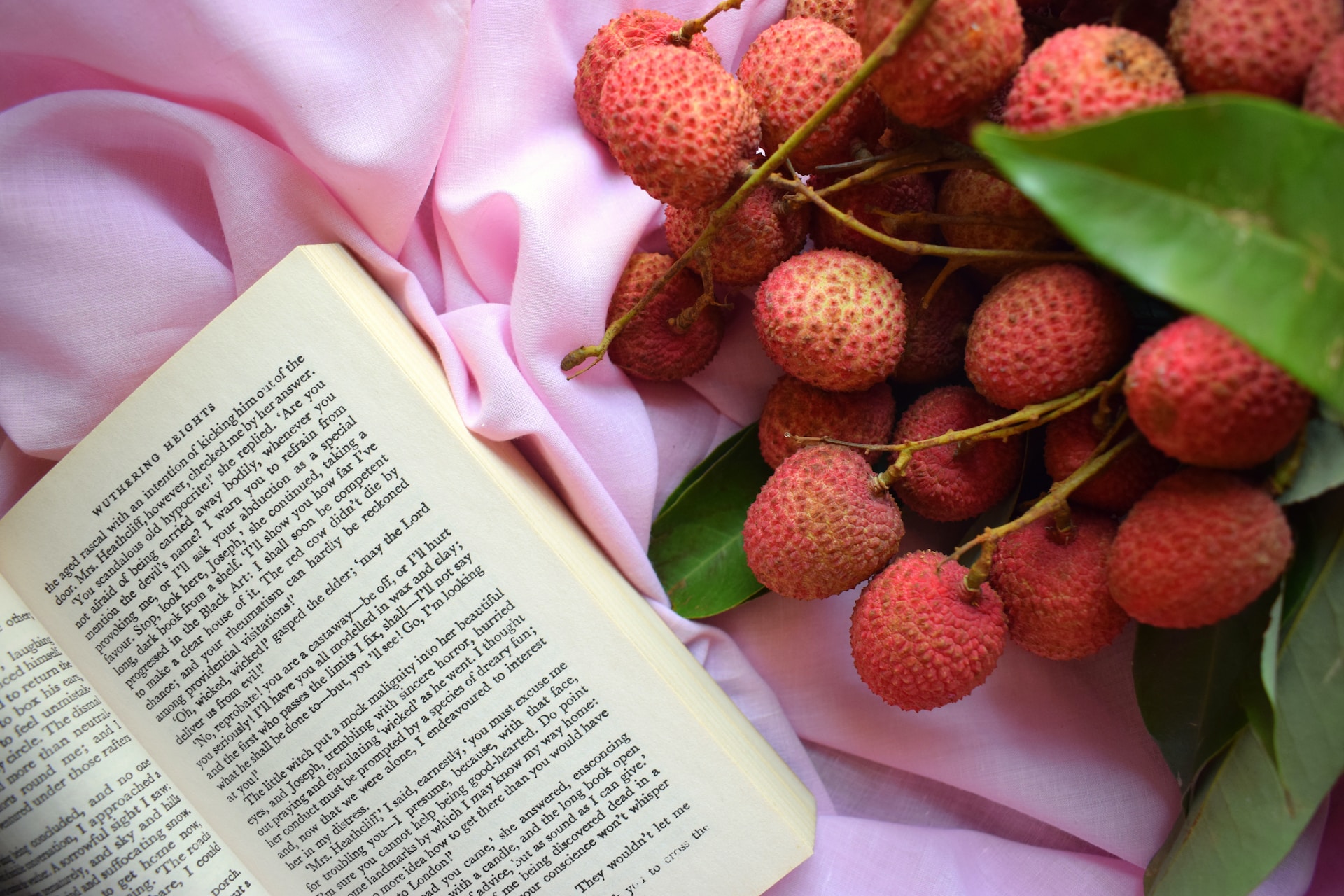
Calcium – Lychee contains small amounts of calcium. The supply of this macronutrient in the daily diet determines the proper functioning and health of bones, teeth, and muscles. Calcium is an essential element for many enzymes. However, a much better source of calcium is, for example, rhubarb.
Zinc – You'll find this mineral in more significant amounts in other products; there is little in fruits such as lychee. Zinc plays a crucial role in maintaining the health and youthfulness of our skin. Its properties help to delay the aging process, leaving our skin looking healthy and vibrant.
Phosphorus – Lychee is rich in phosphorus, an important mineral that plays a vital role in maintaining bone health, along with calcium and vitamin D. Phosphorus also supports proper functioning of the nervous system. You can obtain sufficient amounts of phosphorus through your diet, and if needed, dietary supplements are available as well.
Potassium – Lychee is a rich source of potassium, an essential mineral that plays a crucial role in maintaining overall health. One of the key functions of potassium is regulating blood pressure, making lychee beneficial for keeping your blood pressure in check. This mineral is involved in various vital processes and systems within the body, supporting their proper functioning.
Magnesium – Lychee also provides a good amount of magnesium, which is an essential electrolyte in the body. Magnesium plays a crucial role in ensuring that our cells respond properly to signals and information. It is also involved in various important enzymatic reactions.
Iron – Iron plays a crucial role in promoting tissue growth and regeneration. It supports the immune system, maintains optimal heart function and muscle performance, combats free radicals, and reduces fatigue. While lychee contains only small amounts of iron, its high vitamin C content enhances iron absorption in the body.
Manganese – Lychee contains trace amounts of manganese, which is sufficient to meet your daily requirement. Manganese plays a crucial role in various enzymatic functions within the body, including cholesterol synthesis and the absorption of carbohydrates, fats, and proteins.
Copper – Copper is found in abundance in Lychee fruit. This mineral plays a crucial role in the absorption of iron and helps neutralize harmful free radicals. It engages in energy production in the cell in the production of some neurotransmitters and, thus, in the transmission of nerve impulses. Copper protects cell membranes from damage. Eating lychee, therefore, has a positive effect on all these processes.
Polyphenols – Lychee contains polyphenols, which are powerful antioxidants. These compounds help eliminate harmful free radicals in the body, reducing oxidative stress. Additionally, lychee's polyphenol content has been found to have a positive effect on preventing the development of atherosclerosis by reducing overall cholesterol levels. Furthermore, antioxidants play a key role in protecting against various diseases, including Parkinson's and Alzheimer's.
Lychee is a fruit that is both low in calories and has a low glycemic index and load. These characteristics make lychee a potential aid in weight loss and could help reduce insulin resistance. It is generally safe for consumption in moderate amounts, unless you have known allergies to lychee or birch pollen. Additionally, excessive consumption should be avoided.
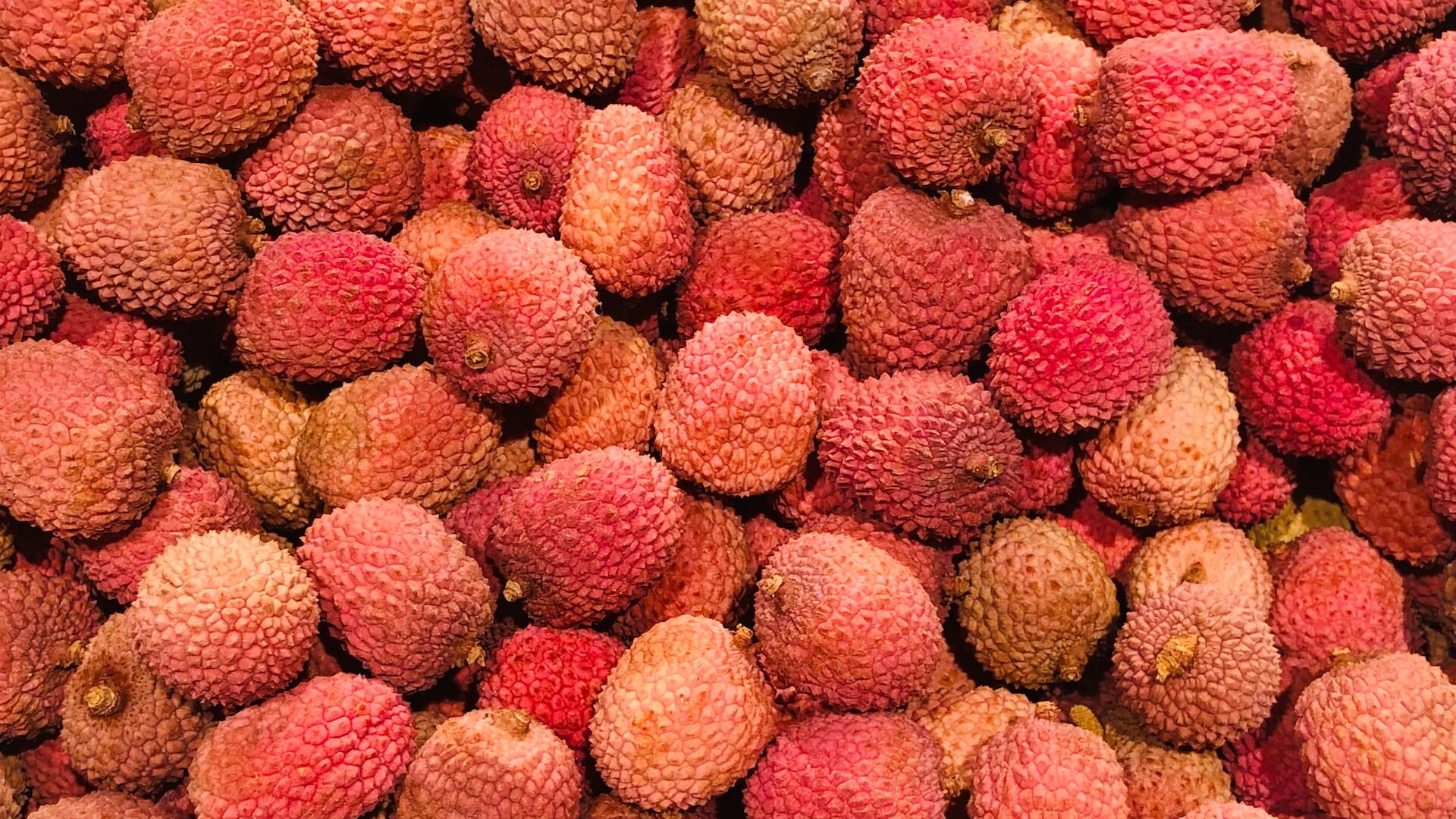
Lychee is a fruit with a high water content of 82%, along with 17% carbohydrates. It also contains proteins, fats, and other essential components. For individuals looking to lose weight, lychee can be incorporated into their diet on a regular basis. It is also suitable for those with conditions like diabetes and insulin resistance as part of a healthy eating plan.
However, it's important to note that lychee should not be consumed excessively due to its high sugar content. With 100 grams of lychee containing about the same amount of sugar as three teaspoons, people with diabetes should moderate their intake of this fruit.
Lychees are a delicious fruit that can be enjoyed in moderation as part of a balanced diet. Including lychees in your diet can have positive effects on your health. Some of the health benefits associated with lychee consumption include:
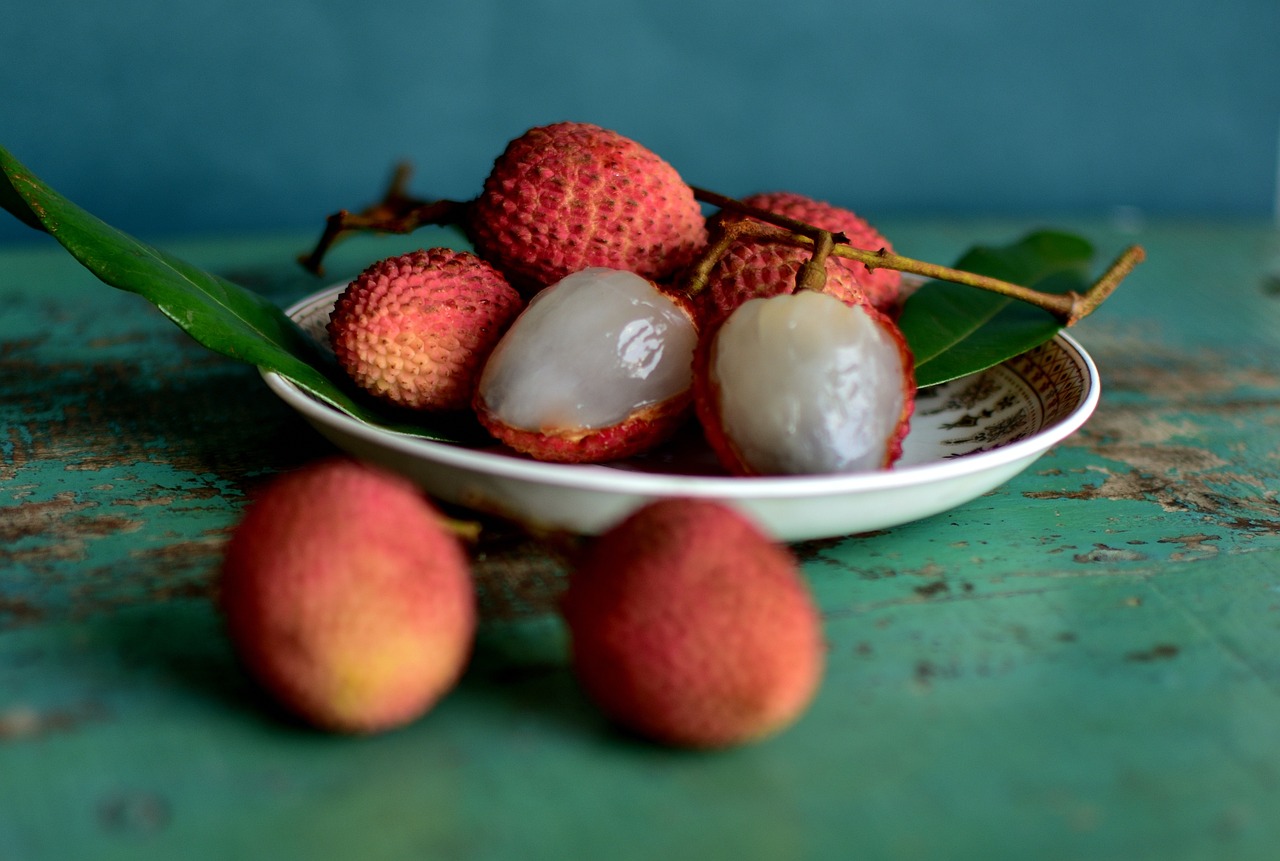
Anti-disease effects – Lychee has well-documented antioxidant properties. The antioxidants naturally present in lychee fruit capture and neutralize oxygen free radicals, so they may reduce the posibillity of developing many diseases of civilization. It is now well known that chronic oxidative stress is essential in developing many chronic conditions, such as cardiovascular, neurodegenerative, cancer, type 2 diabetes, and ocular diseases.
Lowering cholesterol – Lychee regulates the lipid profile. It reduces the concentration of total cholesterol in the blood. It balances the ratio between fractions of bad LDL and fractions of good HDL cholesterol. Lychee fruit should be included in the diet of people at risk of atherosclerosis.
Supporting the circulatory system – Lychee regulates blood pressure thanks to its high potassium content. In addition, the fruit improves blood parameters and has a positive effect on circulation. People with anemia should enrich their diet with lychee fruit. Lychee also has ingredients that are beneficial for reducing inflammation in the body and strengthening blood vessels.
Supporting the digestive system – Supporting digestion: As lychees ripen, the amount of water-soluble pectin increases, which can aid in supporting a healthy digestive system. Conversely, the amount of acid-soluble pectin decreases during this process. Thus, this fruit can affect the regulation of the rhythm of bowel movements. This is especially important for people prone to diarrhea. On the other hand, lychee syrup is considered a valuable medicine that relieves gastrointestinal discomfort, abdominal pain, associated with peptic ulcer disease.
Supporting weight loss – Consuming lychee extract, which contains low-molecular-weight polyphenols with high antioxidant activity, can help lose body fat. Lychee extract has shown promise in reducing body weight, abdominal circumference, and visceral fat in studies. It also exhibits anti-inflammatory properties and can enhance physical performance due to its polyphenol content. However, it's essential to moderate your consumption of fresh lychee as the fruit contains simple sugars.
Immune enhancement – With its abundant vitamin C content, lychee can enhance the body's immune system, helping to fend off illnesses like the common cold and flu. Lychee also stimulates the immune system and aids in combating upper respiratory infections. Furthermore, the presence of phenolic compounds in lychee provides liver benefits and safeguards it against particular diseases. In addition, modern researchers have proven that lychee has potential anticancer effects.
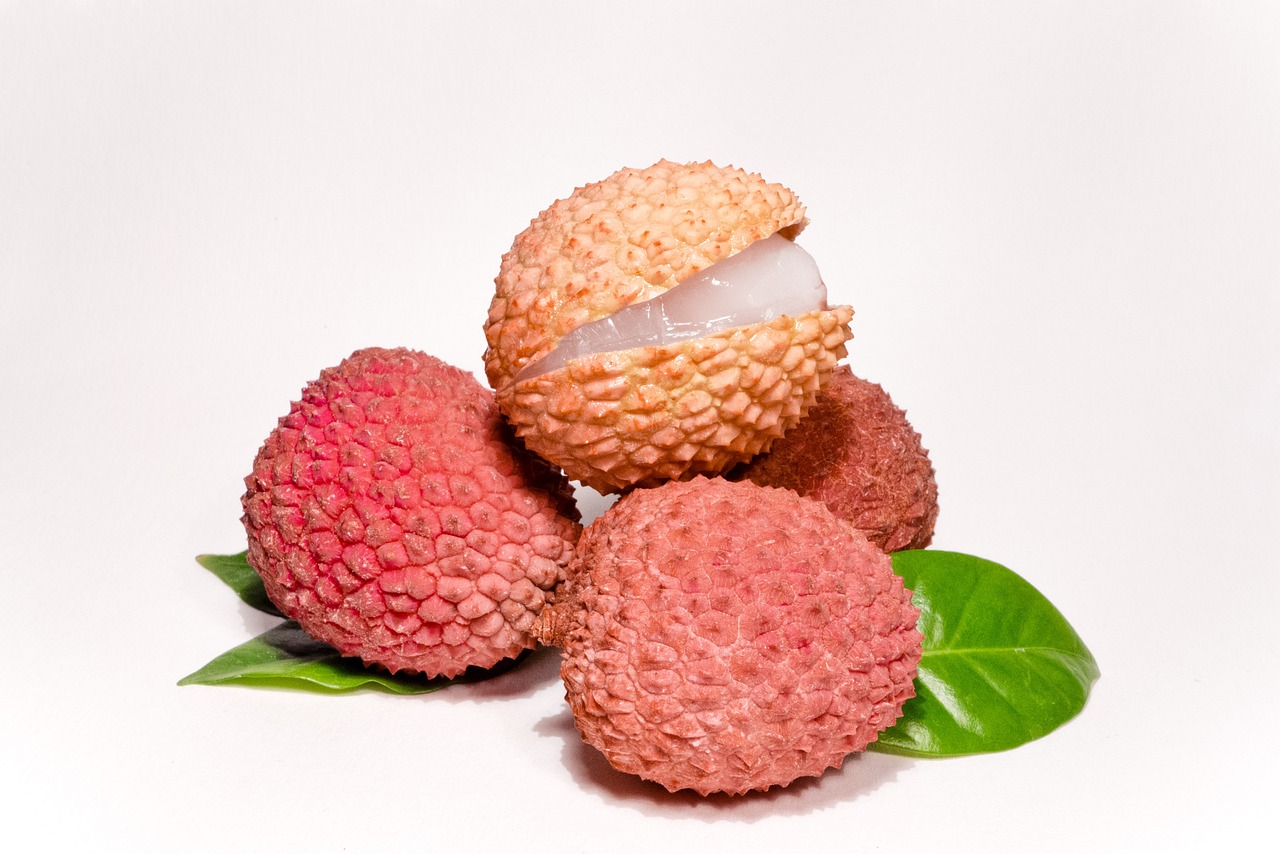
First of all, lychees should be peeled first, as the skin is not edible. Ripe lychees have soft skin, efficiently detaching from the flesh. Most often, it is enough to peel off the stalk with your fingers and then bend the skin back. Another way to consume the fruit is by making a shallow cut with a knife and then opening it up to remove the center.
The flesh can be eaten whole, with the single large seed being spit out. If you prefer using lychee as an ingredient in a dish, such as a dessert, you can cut the flesh in half and remove the seed. Although the seed is large, it's still possible to accidentally miss it. Note, however, that lychee seeds are also inedible.
Lychees belong to that group of fruits that taste best eaten raw as a snack. They have a slightly rosy taste, are very sweet, and at the same time refreshing. Lychees can be used in a variety of preserves and beverages. They also make a great addition to seafood dishes, juices, syrups, and compotes. For a delightful treat, serve lychees with liqueur, cream, or ice cream. It's worth noting that when cooked, the flesh of lychees may turn pink due to the pigment anthocyanin.
Lychee jelly is a delicious dessert option or accompaniment. The unique combination of sweet and sour flavors, along with the juicy texture of lychee fruit, makes it a perfect choice for creating a refreshing jelly. This recipe for delicious lychee jelly with lychee and lemon juice is an unusual dessert, which can also be made with lychee from a can.
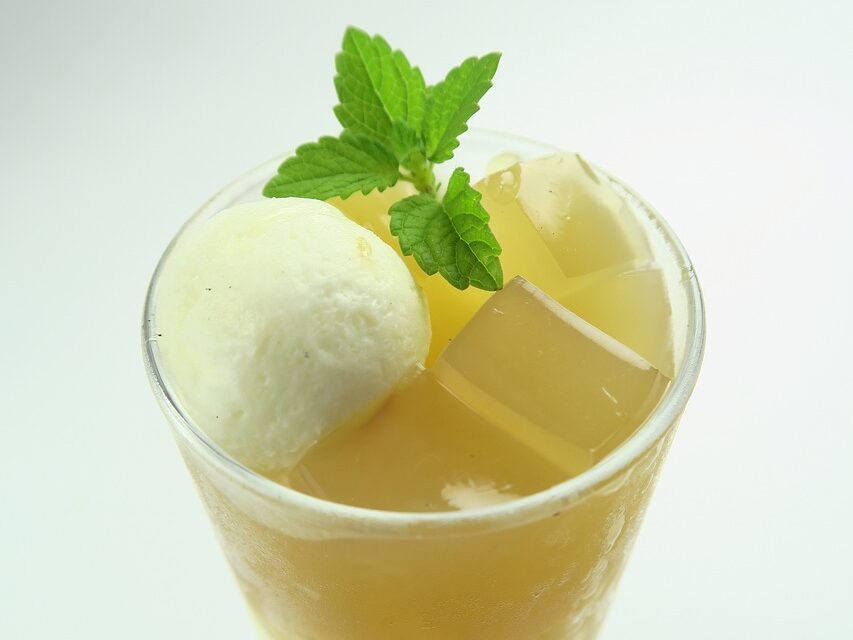
Pour two cups of boiling water into a glass dish. In a mixing bowl, combine 2 tablespoons of gelatin and stir until the granules have dissolved completely. Add 2 tablespoons of sugar and the juice from half a lemon, stirring the mixture well. Set it aside to cool. As the jelly is cooling, peel the lychees and remove their seeds. Place the lychees in a blender and blend; add a little water to make a more liquid mixture.
Pour the water with the gelatin and lemon juice into the vessel where the jelly will set. Add the pulp from the lychee to the liquid. Set the jelly aside in the refrigerator to set. This jelly forms slowly and is delicate. If you want to use canned lychees in syrup, omit the sugar from the ingredients. Set the whole thing aside in the refrigerator for at least four hours.
Lychee lends itself perfectly to creating refreshing and delightful alcoholic beverages. If you are looking to impress your guests, why not give the Lychee Martini a try? It's a recipe that promises to will raise the profile of any meeting and leave an indelible impression on guests.

First, prepare the homemade lychee liqueur. Peel the lychees, remove the seeds, put them in a bootle or jar, sprinkle them with sugar, and pour vodka over them. Shake the pot and set it aside at room temperature for a month. We stir it from time to time. Once the infusion has steeped for a month, it's time to strain, filter, and bottle the homemade lychee liqueur.
If you're short on time, you can purchase pre-made lychee liqueur instead. To whip up a refreshing lychee martini, simply fill a cocktail shaker with ice cubes and add the remaining ingredients. Secure the shaker lid and give it a vigorous shake for about 8-10 seconds. Finally, strain the mixture through a bar strainer into a chilled cocktail glass. Cheers!